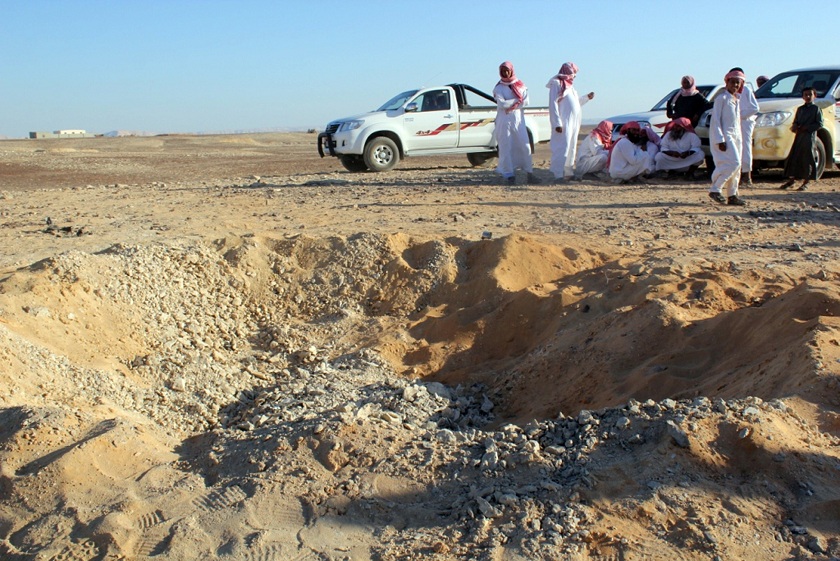CAIRO: Presidential candidate Amr Moussa said on Wednesday he feared a prolonged transition to civilian rule could plunge Egypt into anarchy caused by spiraling violence and economic hardship.
An uprising that toppled Hosni Mubarak in February has hammered the economy and has sparked a wave of sectarian and other violence that the ruling army and its interim cabinet has struggled to control. Investors and tourists have fled.
Egyptians vote for a new parliament starting on Nov. 28 but no date has been set to pick a new president although the existing framework means it may not happen till the end of 2012 or later, leaving presidential powers with the army till then.
"My biggest fear is anarchy," Moussa, 75, a frontrunner to become the next president of the Arab world’s most populous nation, told Reuters at his campaign headquarters in Cairo, adding that he wanted a presidential election by mid-2012.
"A long transitional period is not in the interest of Egyptians nor Egypt," he said, adding it would slow action to support the economy "and also will create an opportunity for all those who want to play havoc with the Egyptian society."
Moussa, Egypt’s foreign minister in the 1990s and head of the Arab League for a decade until this year, said investors, tourists and institutions ready to offer soft loans would hesitate unless the nation’s political direction was clearer.
Consultancy firm Geopolicity said in a report that Egypt’s uprising had cost the economy $9.97 billion up to September.
Egyptians have also been rattled by a surge in tension between Egypt’s Christian minority and Muslims. Christians say churches have been attacked by Islamist groups Mubarak had repressed. Clashes with the army during a Christian protest in Cairo over one such attack left 25 dead this month.
"So economy and security, lack of them, would lead to anarchy," said Moussa, who has said he would only serve one term if he wins the presidency.
Moussa said the parliamentary poll would not resolve the political uncertainty as it was unlikely to hand a majority to any single group, not even Islamists who are viewed as among the strongest contenders in the poll.
"We will have a fragile system under the next parliament, a fragile system with fragmented political groups," he said.
Skilled diplomat
Diplomats say Moussa is, for now, probably the leading contender for the top job because he is the most high-profile candidate and was popular in office for his criticism of Israel and the US-led invasion of Iraq in 2003.
Moussa’s rivals include Mohamed ElBaradei, a former top UN diplomat who many say spent too much time abroad to have broad public support, and Abdel Moneim Aboul Fotouh, viewed as a moderate Islamist who some say is Moussa’s strongest competitor.
Detractors say Moussa, a skilled diplomat who played a mediation role in Palestinian and Israeli peace talks in the 1990s, is tainted because he served in Mubarak’s cabinet.
Moussa dismisses this, saying he was never a member of Mubarak’s now defunct ruling party and should be judged on how well he served in office.
The army has faced increasing public anger over its handling of the transition. Many Egyptians suspect the military is using delaying tactics to secure its privileges, safeguard its broad economic interests and prepare to keep hold of key levers of power even after handing over day-to-day government.
"There is a lot of talk of that kind but I don’t think that driving a wedge between the people or the system and the army is in the interest of anybody," Moussa said, when asked about talk that the army wanted any new constitution to protect its status.
The army insists it has no desire to hang onto power.
"We can always discuss things in a reasonable way and it is not the state versus the army. This is the wrong approach. The army and its command are all part of Egypt and we have to take into consideration whatever worries they have," he added.
Moussa and other presidential candidates have called for a presidential poll on April 1 before a new constitution is drawn up. Under an existing army timeline, the new parliament must choose a body to write the new constitution before such a poll. That could put it back to the end of 2012 or early 2013.
Moussa said a president could be elected even without a new constitution and writing a new constitution should be swift.
"We need to prepare the second republic very soon, and we can do it, in order to start the real business, our real work, our real task, to rebuild Egypt," he said.


